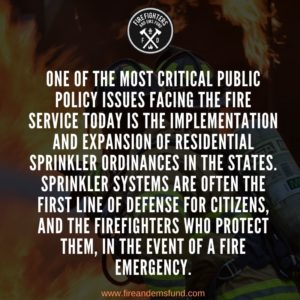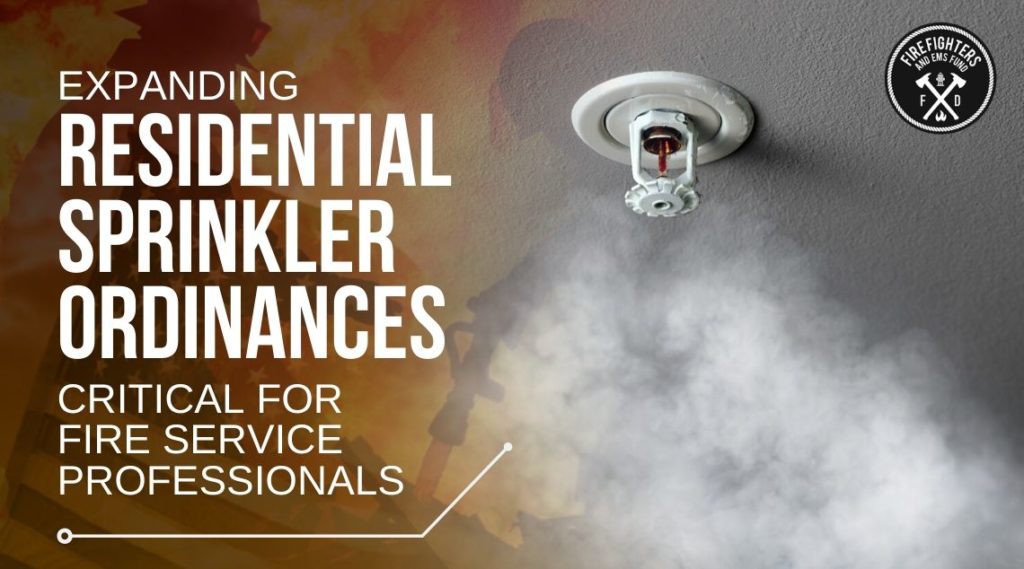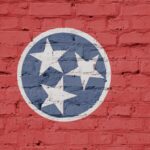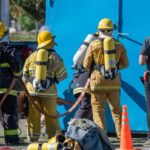One of the most critical public policy issues facing the fire service today is the implementation and expansion of residential sprinkler ordinances in the states. Sprinkler systems are often the first line of defense for citizens, and the firefighters who protect them, in the event of a fire emergency. In fact, people living in homes with working sprinkler system are 85% less likely to be killed in a fire than those who live in residences without sprinklers. Unfortunately, most states do not have laws on the books that require new homes to be equipped with sprinkler systems, which puts the community and first responders at great risk. Here are a few of the facts about residential sprinkler systems and why expanding requirements for these systems is of utmost importance for the fire service industry.
Modern building methods making fires more dangerous

Decades ago, homes and other buildings were simply made stronger than they are today, and used more basic and organic materials. Today, buildings are being made on the cheap with new, synthetic building materials that make construction more efficient and cost-effective, but that could also lead to more dangerous fires that emit strong, toxic fumes. Indeed, sprinkler systems in new buildings are more important than ever as the risk for stronger, more deadly fires increases with the use of synthetic building supplies.
Lack of sprinkler ordinance consistency
While there are federal laws which mandate that new commercial buildings be equipped with sprinkler systems, there is little regulatory consistency when it comes to new homes and other single-family dwellings. Only California, Maryland and the District of Columbia have laws on the books which require new private residences be equipped with sprinkler systems. Outside of those three jurisdictions, no states have requirements to equip new homes with sprinkler systems. This has made it one of the top public policy issues facing firefighters, with many new firefighter coalitions forming in the states to lobby lawmakers to take action.
And clearly, they should. The benefits of sprinkler systems are well-known, and states that fail to enact common sense building regulations are simply ignoring the facts surrounding these life-saving systems. According to an extensive National Fire Protection Association study, the civilian death rate was 81% lower in homes equipped with sprinkler systems while the average firefighter injury rate was 80% lower when responding to residences equipped with sprinkler systems.
The facts could not be clearer about the benefits of home sprinkler systems. State governments must act to pass common sense sprinkler system regulations. Indeed, failing to do so puts everyone at risk, firefighters and civilians alike.
Even with more sophisticated sprinkler systems and smoke detectors in place, the materials used in new, poorly made buildings are putting firefighters at risk of not just fire, but hazardous fumes and chemicals. Here are just some of the facts about how poor construction standards lead to more dangerous fires.









